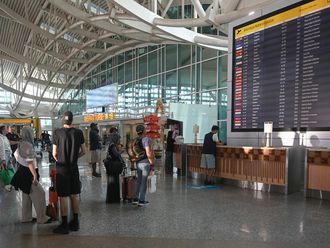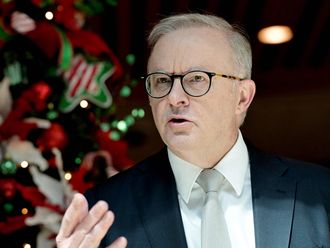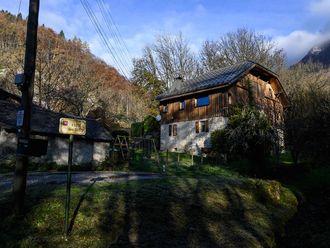Washington: The United States on Friday urged Zimbabwe to allow outside observers led by a regional consortium of African nations to monitor elections to ensure the vote is peaceful and credible.
The 15-member Southern African Development Community, which includes South Africa, has called a summit this weekend to help Zimbabwe raise an estimated $132 million (Dh484.8 million) needed for an election.
The regional group, which includes South Africa, wants to avoid a rerun of a disputed poll five years ago, which sparked violence and prompted a flood of refugees into neighbouring countries.
Zimbabwe’s constitutional court told President Robert Mugabe on May 31 to hold elections before the end of July, in a ruling on an application by a Zimbabwean citizen demanding that an election date be set before the current parliament expires next month.
Mugabe, 86, Africa’s oldest head of state, has clung to power since independence from Britain in 1980 and will face his long-time rival, Morgan Tsvangirai, in an election.
International monitors
“The United States sincerely hopes Zimbabwe will hold peaceful, credible presidential and parliamentary elections this year,” State Department spokeswoman Jen Psaki told a daily briefing.
“We believe the credibility of these elections would be enhanced if a broad range of international monitors led by the Southern African Development Community were accredited to observe,” Psaki said, adding: “This would help to verify that the elections are truly representative of the will of the Zimbabwean people.”
Although there is no formal opinion poll, surveys in the last year by Freedom House, a US political think-tank, and African research group Afro-Barometer have given Mugabe a narrow lead over Tsvangirai.
The country’s finance minister said on May 28 that uncertainty over the election was pushing the country’s fragile economy closer to recession. A repeat of the 2008 election violence could end Zimbabwe’s economic recovery.
On Friday, the International Monetary Fund said it was willing to negotiate an economic monitoring programme with Zimbabwe, the first step in a process that could see the country fully restore relations with the global lender and donors.












